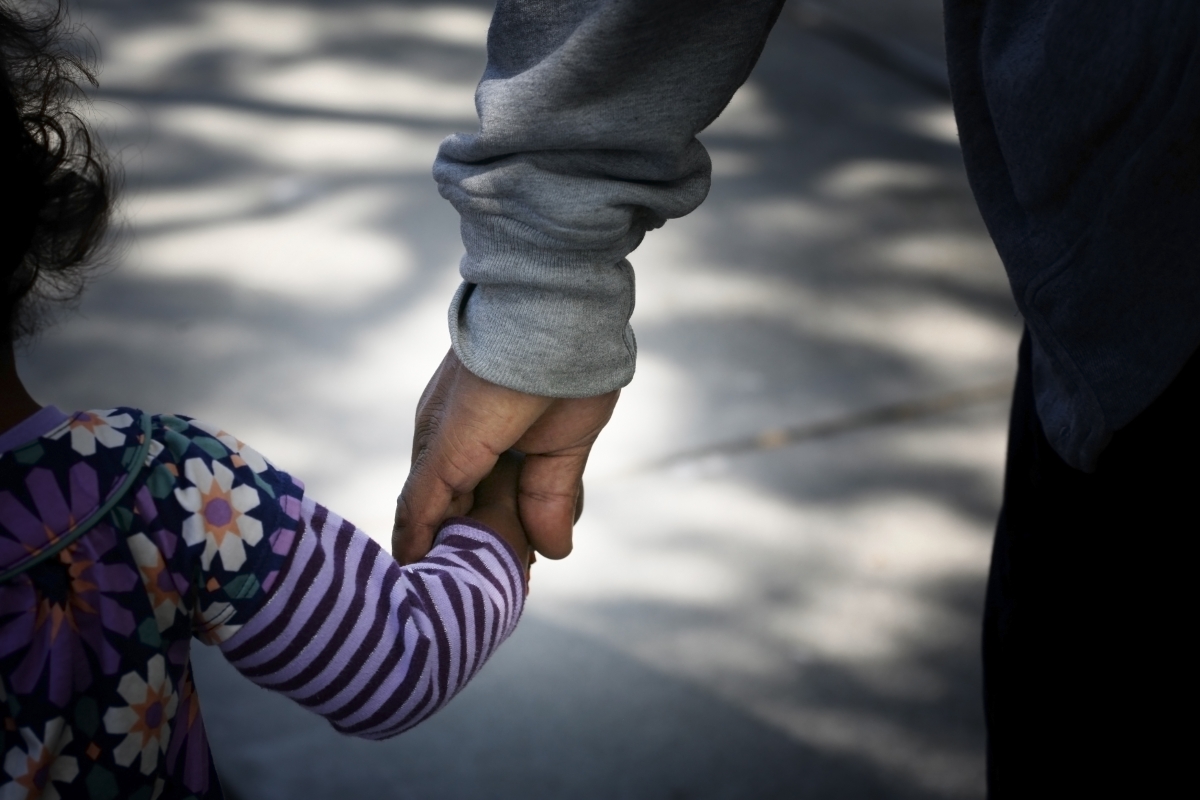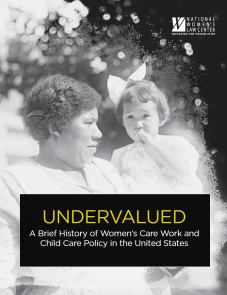Abortion rights, women of color, and LGBTQIA+ people are under attack. Pledge to join us in fighting for gender justice.
Women’s Care Work Is Undervalued. It’s (Past) Time to Change That.

 I am a mom who works outside the home. I am a mom who has trouble affording good child care. And I am a mom who knows that the people – almost exclusively women – who care for my children five days a week don’t get paid enough for the incredibly hard job they have. (Seriously, my kids are what you might call “a handful” if you’re being really, really nice.)
I am a mom who works outside the home. I am a mom who has trouble affording good child care. And I am a mom who knows that the people – almost exclusively women – who care for my children five days a week don’t get paid enough for the incredibly hard job they have. (Seriously, my kids are what you might call “a handful” if you’re being really, really nice.)
I am also a mom who is lucky enough to have a job that allows me to ask – and try to answer – the question: why? Why is it so hard to afford child care in the U.S.? Why is it so hard for the women who provide that care to support their own families? Why does it feel like the job of raising the next generation to be decent human beings isn’t considered a very important one?
For months now, I’ve been looking into these questions – and in this cultural moment, perhaps it won’t surprise you that the short answer is: because sexism. Because racism. Because women – especially women of color – and the work they do have been undervalued in our society for centuries, and because our policies and our institutions have too often reinforced that problem rather than attempting to rectify it.
For example, did you know:
- That the U.S. invests far less public money in supporting child care than most other industrialized nations, while families in the U.S. typically spend almost a quarter of their net income on child care—nearly twice the average (12 percent) across other advanced countries?
- That women child care workers who have a bachelor’s degree or higher still typically make just $12.02 per hour—less than half the median pay for similarly educated women in the workforce overall ($26.44 per hour)?
- That 44 percent of Black single mothers and 54 percent of Latina single mothers who work in child care are raising their own children in poverty?
- That in the decades following the end of slavery, institutions including Booker T. Washington’s Tuskegee Institute focused on training Black women for domestic service—and that Washington himself asserted, “[i]t is mighty important . . . for the civilization, for the happiness, for the health of the Southern white people that the colored nurse shall be intelligent, that she shall be clean, that she shall be morally fit to come in contact with that pure and innocent child”?
- That the S. provided public child care during World War II, when government funds supported thousands of child care centers for the children of women working in defense-related jobs—but Congress withdrew funding shortly after hostilities ended, given the prevailing view that “[t]he first responsibility of women with young children, in war as in peace, is to give suitable care in their own homes to their own children”?
- That the U.S. almost achieved a universal child care system in 1971, when Congress passed the Comprehensive Child Development Act—but it never came to be because President Nixon vetoed the bill, and because a conservative, anti-feminist smear campaign effectively derailed further progress?
I didn’t, until I took on the research that ultimately yielded the report NWLC is releasing today – Undervalued: A Brief History of Women’s Care Work and Child Care Policy in the United States.
I hope you’ll read it. I hope you’ll learn something. And I hope you’ll decide to do something. Because it doesn’t have to be this way. Undervalued includes an overview of policies and strategies that can begin to create a system that works for both families and child care providers. To name just one example, the Child Care for Working Families Act (S. 1806/H.R. 3773) introduced in September would dramatically expand access to affordable, high-quality child care for working families and raise wages for child care providers by an estimated 26 percent, according to the Center for American Progress. And right now, as Congress debates how to fund the government for the remainder of FY 2018, Senators Elizabeth Warren and Bernie Sanders are calling for $2.9 billion increase in funding for the Child Care and Development Block grant – a really meaningful boost that would enable states to meet important health, safety, and quality standards in their child care programs while also allowing nearly 230,000 additional children to receive child care assistance.
For far too long, both our society and our public policies have vastly undervalued the “women’s work” of child care, and women—along with the families they support—have been especially harmed as a result. We know why our child care system is broken; now let’s get to work to fix it.





